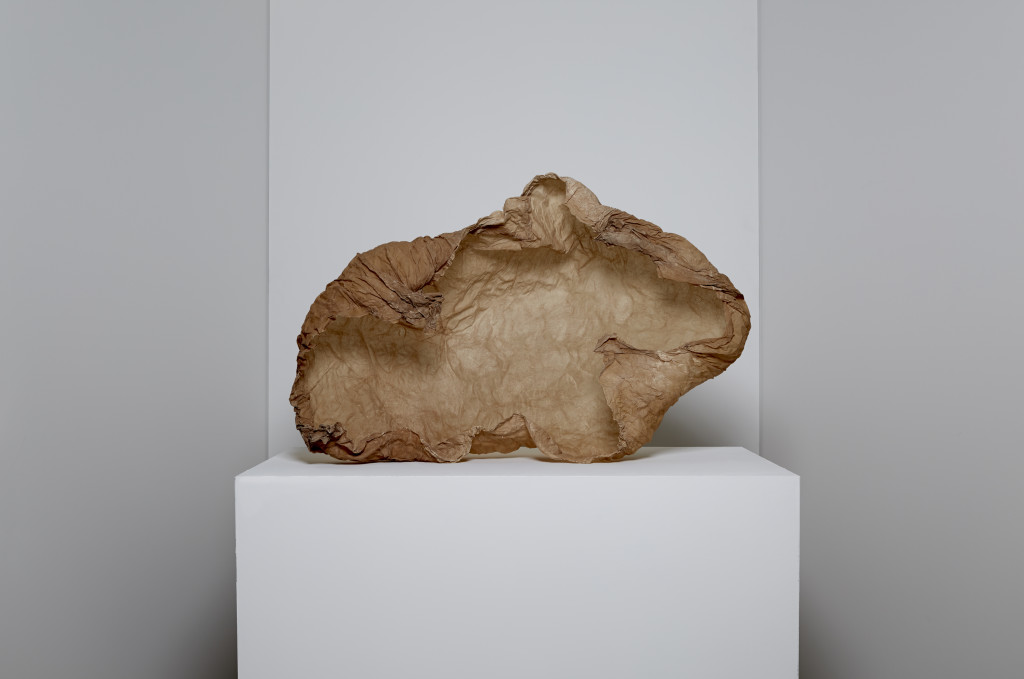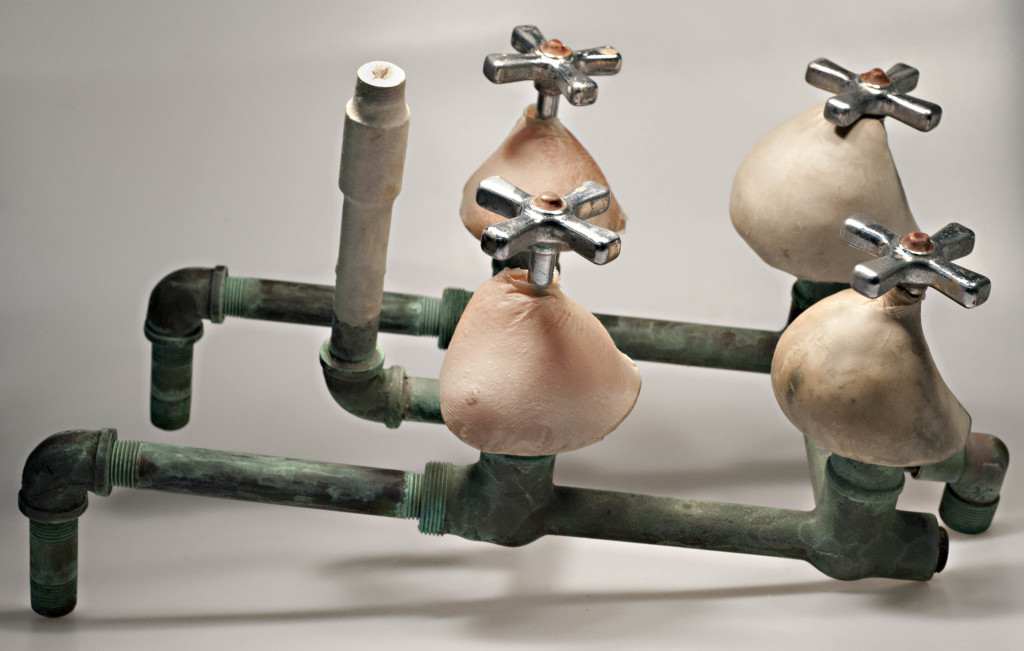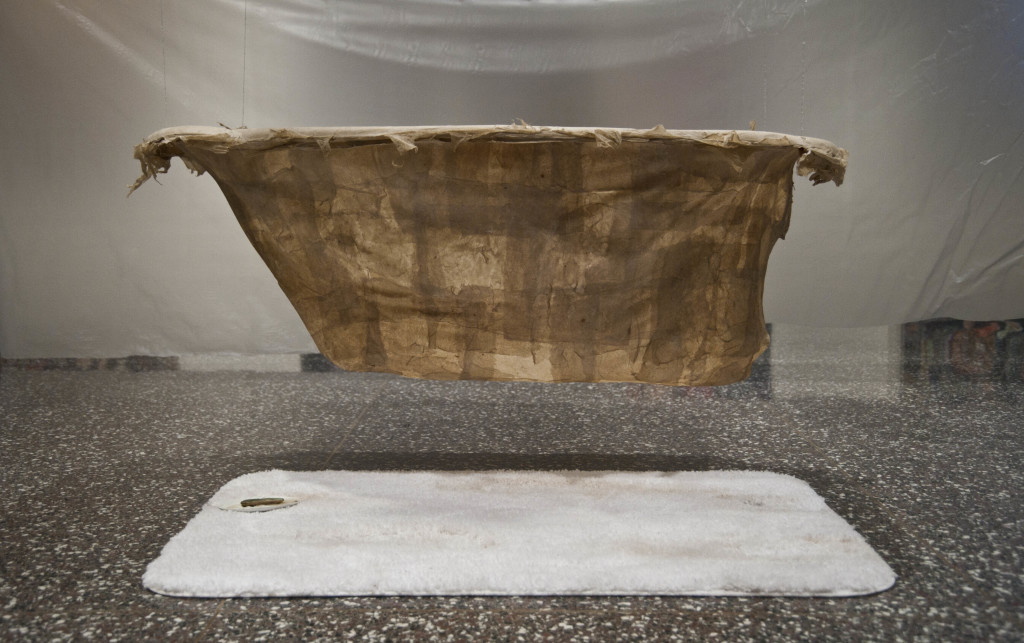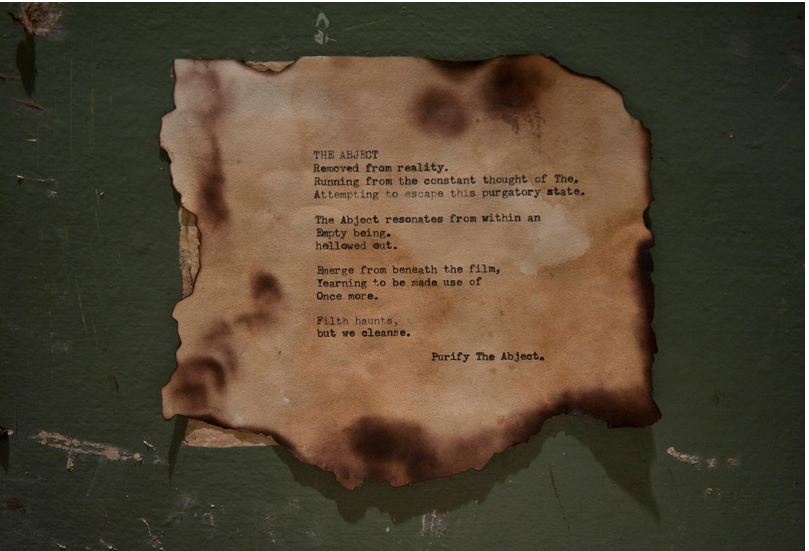Author | Annie Malamet | Visual Arts Editor
Interview with Loren Crabbe
“I strive to incorporate surrealistic elements from these concepts within my own ideas of abjection to approach the viewer with a full-bodied multimedia experience.”
AM: Can you speak more about your interest in the human body as a vehicle for your aesthetic/message?
LC: My artwork serves as a visual representation of my journey in attaining physical and mental strength. After having persevered through physical hardship and mental abuse, each piece I create becomes a record of the human condition and abandonment of weakness and trauma. I am interested in how the human body can both physically and mentally react to adverse scenarios. As a young woman I was heavily involved in Martial arts and strenuously physical art that occupied all of my free time. My world was isolated and revolved around my own physical ability and what freedoms it had to offer me. It was during these formative years that I began to understand the body’s limitations and capabilities.
I currently create and perform in order to connect with a public audience, to engage with the viewers’ emotions and relate my physical experiences to theirs. Whether it is through physically or mentally demanding exercises, the work I create comes back to pursuing one’s true human potential.

AM: You are very interested in trauma and the limits of the human body. How do you think these things inform your artistic process?
LC: After enduring a life altering auto accident that resulted in short term paralysis, I gained a newfound appreciation for my mind and body. While immobile, I spent endless hours analyzing and unfolding the true meaning of the mind body connection. By delving deeper into psychogenesis and the power of mind control in order to rehabilitate myself from injury, I overcame paralysis through physical and mental training. The traumatic and limiting experience I endured made me realize the importance of oneself within their art. It became very clear that I was going to become the ultimate tool and resource within my making. My artistic process has, since then, become a reflection of my current and past human condition.
AM: I would say that the act of creating the work is just as important to you as the final product. Would you agree with this statement/would you add to this?
LC: The process and act of making is a main component in creating my work. The interaction I have with material during the process of production is instrumental in shaping the final product. The processes that I utilize, such as metalsmithing and papermaking, are extremely labor intensive and time extensive. These hands on techniques possess a meditative quality that connects me to my materials and allows me to hone in on my skills and techniques.
RESTRICTION is a long durational performance video that highlights the importance of process in my practice. The duration of the video is dependent on my own personal perseverance both mentally and physically throughout the performance. The videos vary in length due to the differing levels of pain caused by each pose. Accompanying the final video performances is a selfdocument made to highlight my interaction with papermaking. In the restriction performance, a 40×60inch piece of wet handmade abaca paper is draped over my body and left to dry and shrink, cocooning my form. The process video provides the viewer with a look into the labor involved with pulling each sheet of paper, accentuating the initial objective.
The unpredictable journey traveled from the start of a concept to the final result of a project is constantly evolving. By personally experiencing the phases of making, I build a strong relationship with each piece of work. I find that the most interesting part of creating lies within the process, rather than the product.
Below is RESTRICTION 1* and RESTRICTION 2 from LOREN CRABBE (visit website for more):
AM: How does the concept of abjection apply to your unique style/artistic message?
LC: Abjection is a concept that I have been unfolding for many years. It is a recurring theme in my work and is also an everyday exploration. The abject is not a feeling or a tangible object, but a force that resonates from within. This ambiguous concept of the abject is used in my work to define the horrors and emotions that we have all experienced and how they remain locked up inside of us.
PURGING ABJECTION is a roomsized installation that depicts a nonfunctional bathroom. The objects within the bathroom once used for cleansing, are shifted into useless items made from paper and alternative materials. The space is uncomfortable and unsettling, filling the air with a sense of vulnerability. I use surrealist twists and scale shifts to depict the complicated and traumatizing stains of violence, incest, and sexual abuse.
I seek to collaborate with NonProfit Organizations that fight against these ugly truths and exploit the hapless statistics of our society through art and activism. My goal is to create public awareness outside of the art community, that can understand and relate to the installations from a level of human commonality.


AM: Do the concepts of body horror and the grotesque play any part in your work or are you more interested in transcending these concepts?
LC: I strive to incorporate surrealistic elements from these concepts within my own ideas of abjection to approach the viewer with a full-bodied multimedia experience. The raw truths that are exposed while working with the concept of abjection are intimidating and aggressive. Body horror and the grotesque provide a level of shock value that leaves a lasting impression. While they are useful in this way, and an inescapable aspect of abjection, I am more interested in the truth they provide rather than the themes themselves.

